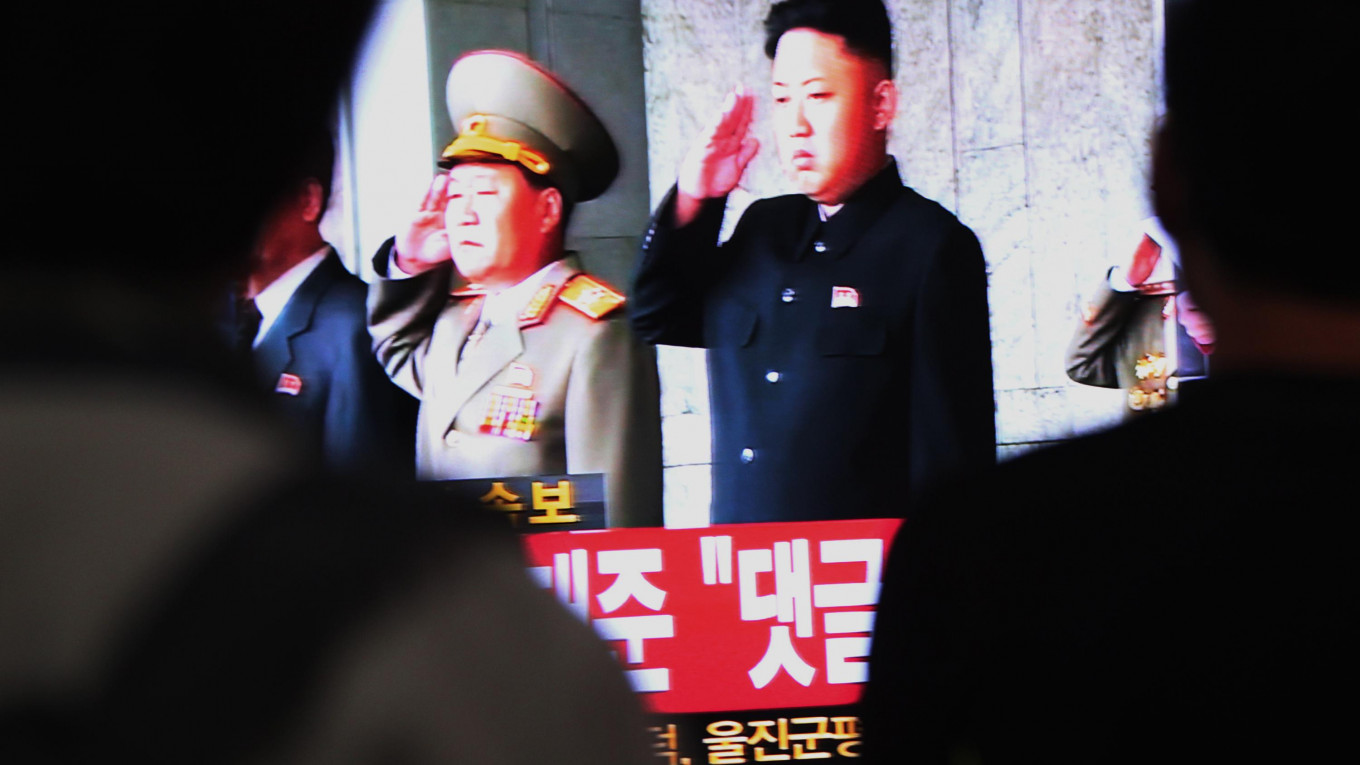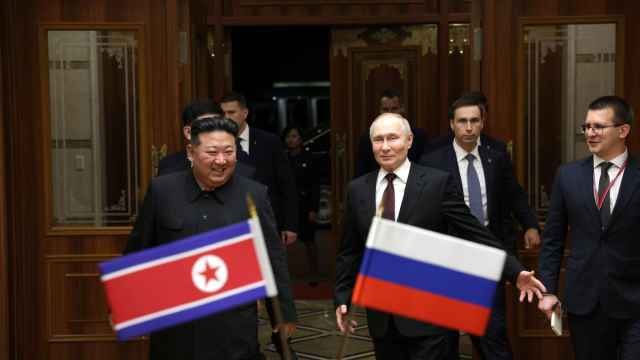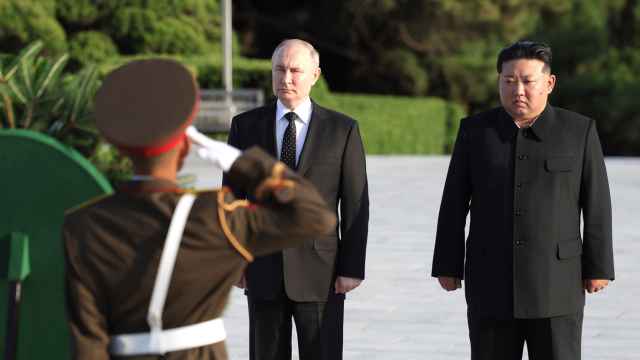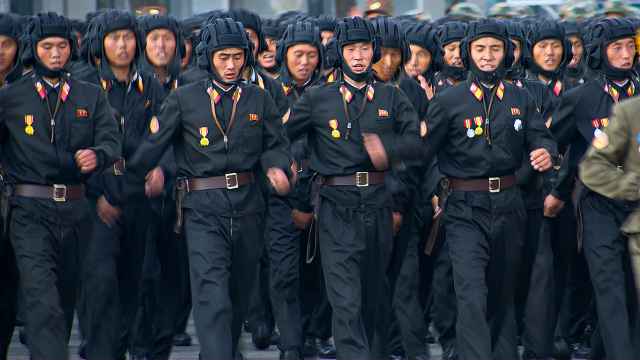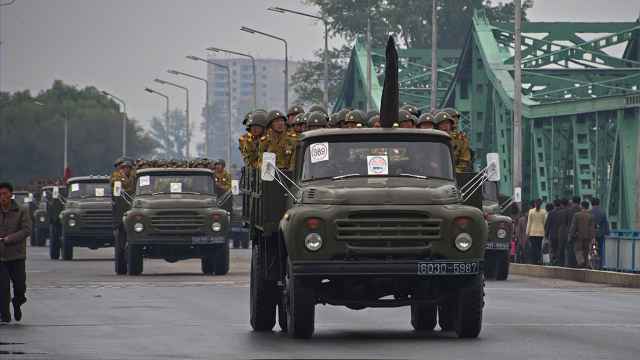If the U.S. launches airstrikes on North Korea to prevent another nuclear weapons test, Russia has nothing to fear, scientists in Moscow assured the public on Friday.
Leonid Bolshov, the director of the Institute for Safe Atomic Energy Development at the Russian Academy of Sciences, told the news agency RIA Novosti that jet streams will protect the country from any potential radioactive clouds.
“We’re analyzing the situation and calculating all possible risks,” Bolshov said. “Even if we consider the most negative scenario, where the U.S. launches a reckless attack on the nuclear research center in Yongbyon, where the reactor supplied by the Soviet Union in the 1950s [sic] is located, and where fissile material is created. This would risk radioactive contamination, primarily in North and South Korea, China, and Japan.”
Russian scientists have determined that wind generally blows from China and the Gobi Desert towards the Pacific Ocean, which would send any radioactive clouds to the ocean, away from the Russian mainland.
A Message from The Moscow Times:
Dear readers,
We are facing unprecedented challenges. Russia's Prosecutor General's Office has designated The Moscow Times as an "undesirable" organization, criminalizing our work and putting our staff at risk of prosecution. This follows our earlier unjust labeling as a "foreign agent."
These actions are direct attempts to silence independent journalism in Russia. The authorities claim our work "discredits the decisions of the Russian leadership." We see things differently: we strive to provide accurate, unbiased reporting on Russia.
We, the journalists of The Moscow Times, refuse to be silenced. But to continue our work, we need your help.
Your support, no matter how small, makes a world of difference. If you can, please support us monthly starting from just $2. It's quick to set up, and every contribution makes a significant impact.
By supporting The Moscow Times, you're defending open, independent journalism in the face of repression. Thank you for standing with us.
Remind me later.


